Honeybadger Integration
Honeybadger is a service that monitors applications in production and lets you know about errors, outages, and performance problems. Honeybadger provides notifications via different channels along with rich reports that makes fixing the problems easier.

What does Opsgenie offer to Graylog users?
Integrate Opsgenie with Honeybadger to dispatch the alerts generated by Honeybadger, determines the right people to notify based on on-call schedules– notifies via emails, SMS, phone calls, and iOS, and Android push notifications, and escalates alerts until they are acknowledged or closed.
Functionality of the integration
-
When an alert is created in Honeybadger, an alert is also created in Opsgenie automatically through the integration.
-
When an alert is closed in Honeybadger, the related alert is closed in Opsgenie.
Add Honeybadger integration in Opsgenie
- Go to Opsgenie's Honeybadger integration page
An alternative for this step is to add the integration from the Team Dashboard of the team which will own the integration. To add an integration directly to a team, navigate to the Team Dashboard and open Integrations tab. Click Add Integration and select the integration that you would like to add.
For Free and Essentials plans, you can only add the integrations from the Team Dashboards, please use the alternative instructions given above to add this integration.
- Click Save Integration.
- To modify default rules for the Honeybadger Integration, click Go to Advanced Settings.
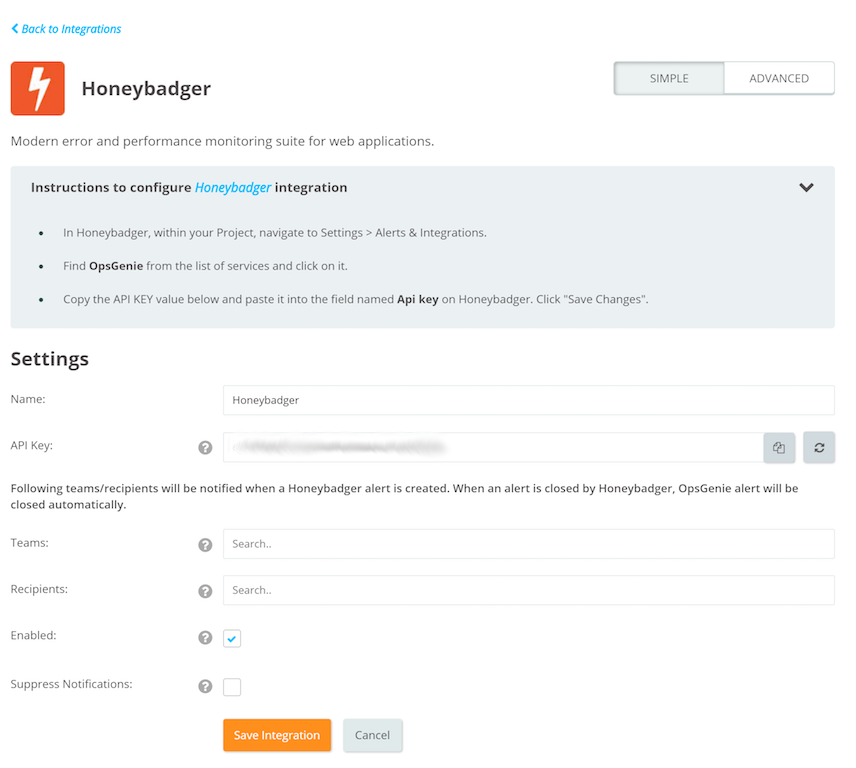
- Create/edit conditions for filtering Honeybadger alerts on Filter segment.
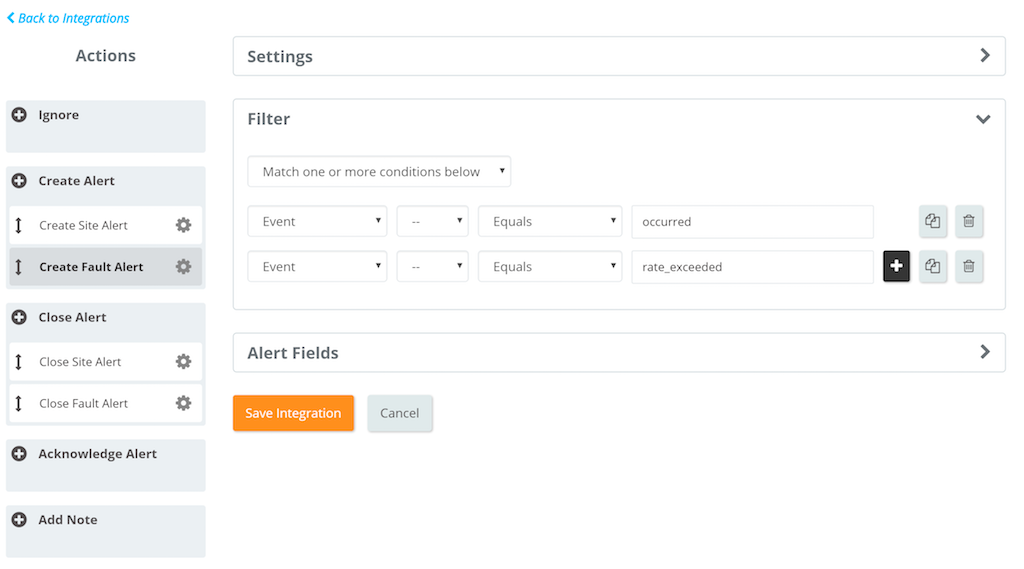
- Modify fields for the alerts generated by Honeybadger using Alert Fields segments.
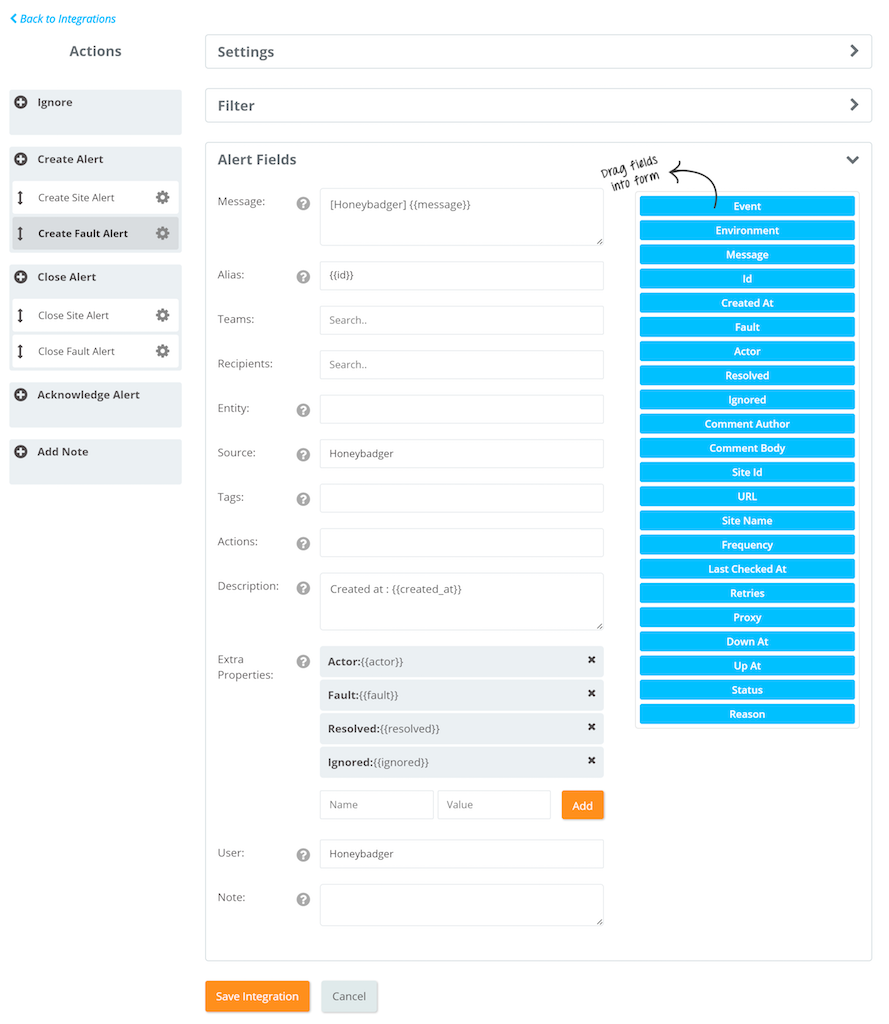
Configuration on Honeybadger
- Go to Projects > Settings > Integrations.
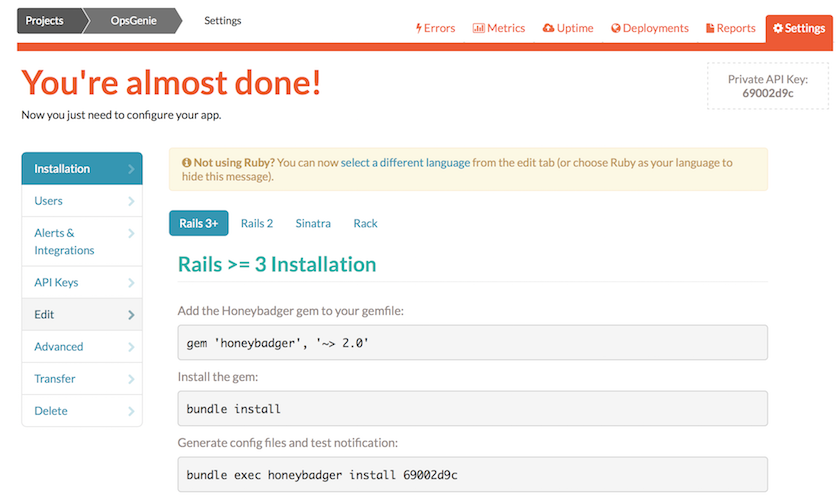
- Select Opsgenie from the list of services.

-
Copy the API key that is generated from the Honeybadger Settings page on Opsgenie and paste it into Api key field on Honeybadger Webhook Integration page.
-
Depending on the instance you are using, select US or EU under Endpoint section.
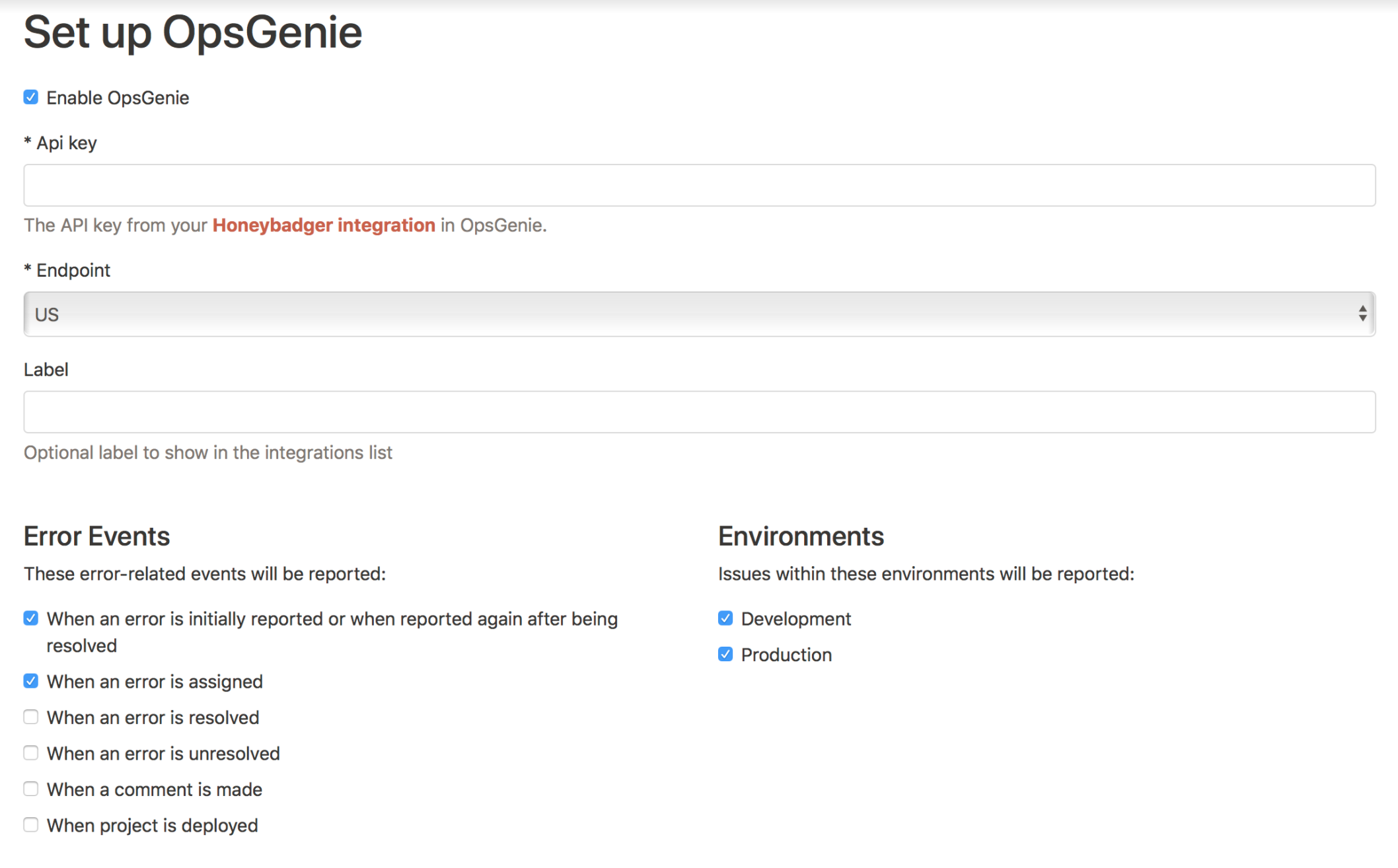
- Click Save Changes.
Honeybadger Events
When the Honeybadger Integration is added to Opsgenie, two rules for creating alerts and two rules for closing alerts are automatically added for you which matches Honeybadger's fault and site based alerts. The content for those two types of alerts are totally different so use and modify those rules to stay up-to-date with all the features Honeybadger provides.
The following is the complete list of event types that Honeybadger generate and you can use for the Event field for filtering:
- occurred
- rate_exceeded
- down
- resolved
- up
- unresolved
- commented
- assigned
- deployed
Sample payload sent from Honeybadger
{
"event": "resolved",
"message": "[Crywolf/production] RuntimeError resolved by Joshua Wood",
"actor": {
"id": 3,
"email": "[email protected]",
"name": "Kadir"
},
"fault": {
"project_id": 1717,
"klass": "RuntimeError",
"component": "pages",
"action": "runtime_error",
"environment": "production",
"resolved": true,
"ignored": false,
"created_at": "2015-07-02T18:57:26.757Z",
"comments_count": 4,
"message": "This is a runtime error, generated by the crywolf app at 2015-07-16 10:44:13 -0700",
"notices_count": 3,
"last_notice_at": "2015-08-06T22:11:43.738Z",
"tags": [],
"id": 13760144,
"assignee": null
}
}Sample alert

Updated 7 months ago
